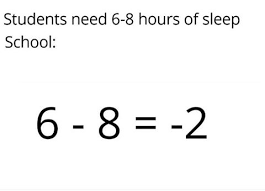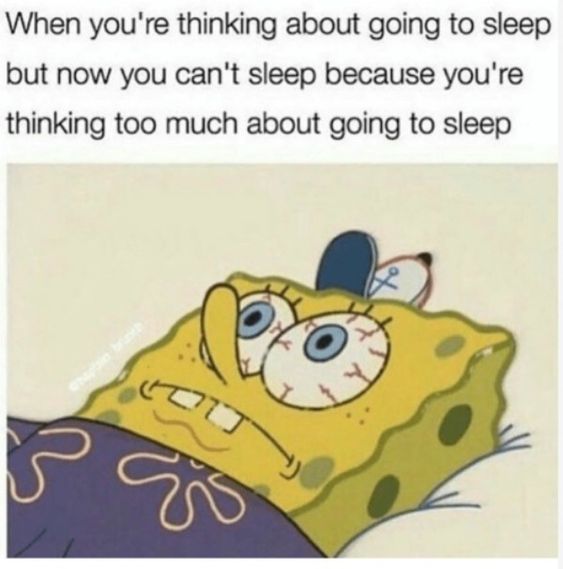https://www.yes24.com/Product/Goods/69761743
우리는 왜 잠을 자야 할까 - 예스24
세계적인 신경 과학자이자 수면 전문가인 매슈 워커의 『우리는 왜 잠을 자야 할까』가 열린책들에서 번역 출간되었다. 워커는 100편이 넘는 과학 논문을 발표하며 정력적인 연구 활동을 벌이는
www.yes24.com
도서 : 우리는 왜 잠을 자야 할까 (Why We Sleep), 매튜 워커
Matthew Walker: My name is Matthew Walker, I am a professor of neuroscience and psychology at the University of California, Berkeley, and I am the author of the book "Why We Sleep."
We certainly know that a lack of sleep will actually prevent your brain from being able to make new memories initially, so it's almost as though without sleep the memory inbox of the brain shuts down and you can't commit new experiences to memory. So those new incoming informational emails are just bounced, and you end up feeling as though you're amnesiac. You can't essentially make and create those new memories.
We also know that a lack of sleep will lead to increased development of a toxic protein in the brain that is called beta amyloid and that is associated with Alzheimer's disease because it is during deep sleep at night when a sewage system within the brain actually kicks in to high gear and it starts to wash away this toxic protein, beta amyloid. So if you're not getting enough sleep each and every night, more of that Alzheimer's-related protein will build up. The more protein that builds up, the greater your risk of going on to develop dementia in later life.
What are the effects of sleep deprivation on the body? Well, there are many different effects. Firstly, we know that sleep deprivation affects the reproductive system. We know that men who are sleeping just five to six hours a night have a level of testosterone which is that of someone ten years their senior. So a lack of sleep will age you by almost a decade in terms of that aspect of virility and wellness.
We also know that a lack of sleep impacts your immune system. So after just one night of four to five hours of sleep, there is a 70% reduction in critical anticancer-fighting immune cells called natural killer cells. And that's the reason that we know that short sleep duration predicts your risk for developing numerous forms of cancer. And that list currently includes cancer of the bowel, cancer of the prostate, as well as cancer of the breast. The link between a lack of sleep and cancer is now so strong that recently the World Health Organization decided to classify any form of nighttime shift work as a probable carcinogen. So in other words, jobs that may induce cancer because of a disruption of your sleep rate rhythms.
We also know that a lack of sleep impacts your cardiovascular system because it is during deep sleep at night that you receive this most wonderful form of effective blood pressure medication. Your heart rate drops, your blood pressure goes down. If you're not getting sufficient sleep, you're not getting that reboot of the cardiovascular system, so your blood pressure rises. You have, if you're getting six hours of sleep or less, a 200% increased risk of having a fatal heart attack or stroke in your lifetime.
There is a global experiment that is performed on 1.6 billion people twice a year and it's called daylight saving time. And we know that in the spring, when we lose one hour of sleep, we see a subsequent 24% increase in heart attacks the following day.
Another question, perhaps, is what is the recycling rate of a human being? How long can we actually last without sleep before we start to see declines in your brain function or even impairments within your body? And the answer seems to be about 16 hours of wakefulness. Once you get past 16 hours of being awake, that's when we start to see mental deterioration and physiological deterioration in the body. We know that after you've been awake for 19 or 20 hours, your mental capacity is so impaired that you would be as deficient as someone who was legally drunk behind the wheel of a car. So if you were to ask me what is the recycle rate of a human being, it does seem to be about 16 hours and we need about eight hours of sleep to repair the damage of wakefulness. Wakefulness essentially is low-level brain damage.
1. 수면부족은 알츠하이머 유발인자인 독성 단백질 '베타 아밀로이드'의 제거를 방해한다.
2. 4~5시간의 수면시간은 자연살해세포(암과 싸우는 세포)의 70% 감소를 불러 일으킨다. 고로 각종 다양한 암의 발생확률을 상승시킨다. (대장암,전립선암, 유방암)
3. 잠이 부족하면 현재 나이보다 10살 더 적은 테스토스테론 수치로 떨어뜨린다.
4. 18시간의 각성으로 인한 뇌의 손상은 8시간의 수면으로 회복할 수 있다.
요약 : 잠 부족은 당신을 뒤지게 할 수 있음






'🟩 개 인 관 심 사 공 부 🟩 > 🔠Eng' 카테고리의 다른 글
| 제2형 당뇨병 치료제 오젬픽과 위고비 '세마글루타이드' 자살충동 연관성 (0) | 2024.02.21 |
|---|---|
| Cozy Cardio (코지 카디오/가벼운 유산소 운동/방구석 홈트) (0) | 2024.02.20 |
| 알래스카 폭스 (Alaskapox Virus) (0) | 2024.02.19 |
| 당신이 다이어트에 실패하는 이유 (1) | 2024.02.15 |
| 원서읽기 : 도리를 찾아서 Chapter 12 (0) | 2022.11.30 |
| 원서읽기 : 도리를 찾아서 Chapter 11 (0) | 2022.11.27 |
| 원서읽기 : 도리를 찾아서 Chapter 10 (0) | 2022.11.22 |
| 원서읽기 : 도리를 찾아서 Chapter 9 (0) | 2022.11.20 |




댓글